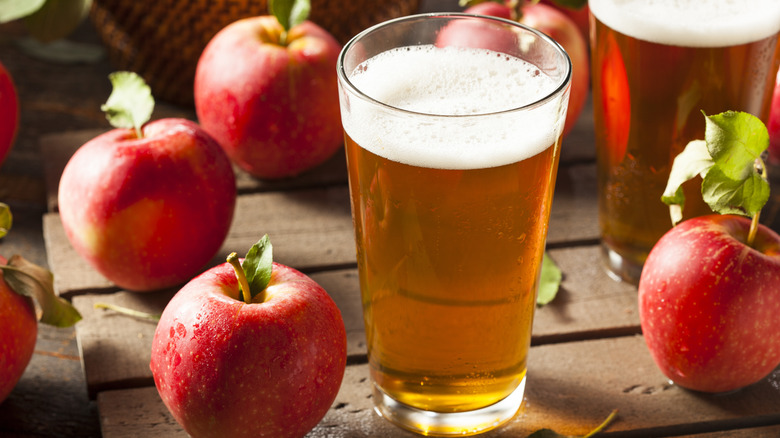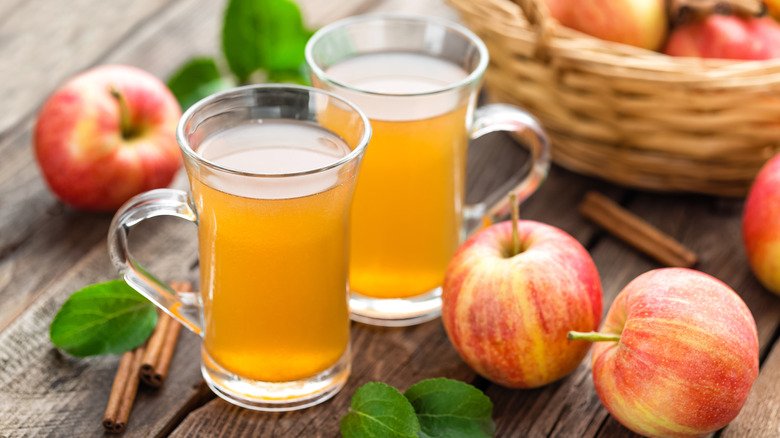A Cidermaker Says This Is The Key Label Indicator Of Quality Hard Apple Cider
Hard apple cider doesn't enjoy quite the same market share as, say, beer or wine, which means most of us aren't as familiar with what's on offer. If we're purchasing some hard cider, we may understand the difference between dry cider or sweet but there's more to the genre than that. To help us figure out what we as consumers should be looking for in our hard apple cider, we reached out to Peter Yi, co-founder and head cider maker at Brooklyn Cider House.
"Look for cider apple varieties on the label," Yi told us. "If you see apples you don't recognize, there is a good chance that they are cider apples." Cider apples are a loose group of apple varieties that aren't typically eaten raw. There are thousands of varieties of apple currently in existence, though only a couple hundred are produced en masse in the U.S. Most of us are familiar with the most popular types of apples since we often see them at the grocery store — varieties like Red Delicious, Gala, and Fuji.
But the kinds of apples you want in apple cider aren't the same apples you buy and eat fresh. "Some good cider apples to look out for on a label include Dabinett, Kingston Black, Porter's Perfection, Ellis Bitter, and Manchurian Crabapple." There may be some exceptions out there but most hard apple cider uses a blend of apple varieties, each of which tilt the flavor profile in a specific direction.
Hard apple cider is best made with cider apples
Some ciderhouses will still use the more popular apple varieties in their cider to add a touch of sweetness to their product or because they're more readily available but Yi is in good company when he says hard cider made from cider apples is the way to go. The apple varieties we like to eat raw are often sweet but cider apples are often bitter if eaten straight. That makes them perfectly suited for cider since, unlike apple juice, many of us don't like our hard apple cider to be overly sweet. Not to mention, a lot of the sugars get eaten up by the yeast during fermentation which can leave these more common varieties tasting less flavorful.
Yi's trick of looking for apples you don't recognize can seem haphazard but it makes a lot of sense when you think about it. Ciderhouses producing high-quality cider using apple varieties that are better suited for the job are going to be using cider apples which, unless you work in the cider business, you probably aren't familiar with. Of course, if you already know what kinds of apples you like in your hard cider then you're ahead of the game. But this is a good trick for those of us without a degree in pomology. There are a lot of great hard cider brands out there and each will be doing something unique so get adventurous and try something new.

